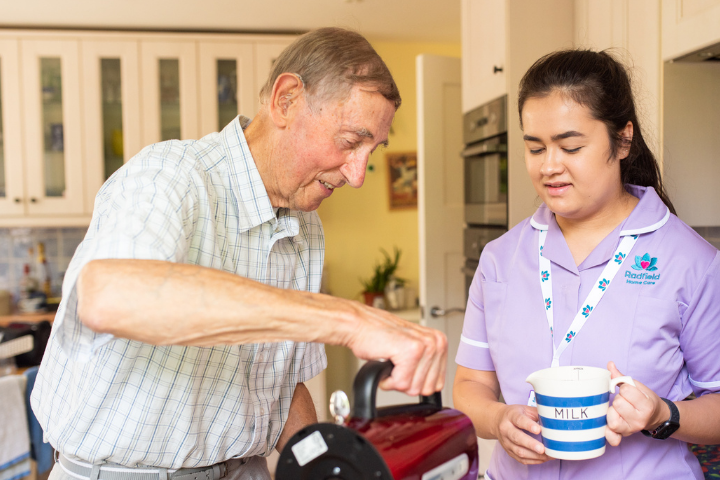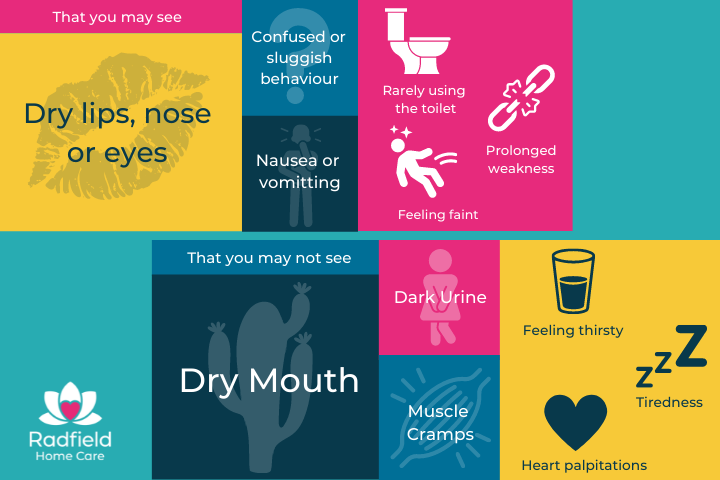
National Office
Please enter the office location/term above to receive results for your closest office as well as information matches
Dehydration is a common problem among older people and can be fatal if left untreated. Research has found that there is a general reduction in the thirst sensation as you get older, meaning that many people are unaware that they may need to drink more fluids.
Previously we looked at hydration myths and how these are affecting the health of older people. In this article we will explore the symptoms to look out for and what to do if you’re concerned someone may have a hydration issue.
Sometimes those experiencing conditions such as dementia or Alzheimer’s may not be able to remember when they last drank water, or even register that they are thirsty at all. This means that occasionally it’s up to others to help achieve healthy drinking and spot the symptoms of dehydration. A bit of extra due diligence could save someone’s life. Here’s what to look out for if you suspect someone may be dehydrated:
Like many illnesses, most of the symptoms are invisible to third parties. This can make things slightly difficult. However, if you deploy a sensitive, diplomatic approach, you may get someone to open up to what they’re experiencing. Here are some of the dehydration symptoms you may not see:
If left untreated, severe dehydration can be serious and can cause seizures, brain damage and even death.

Radfield believes that the best way to deal with hydration in the long run is to avoid dehydration in the first place. Radfield offers a wide range of nutrition and hydration services, including meal preparation and Radfield care professionals are highly trained and well equipped to help assist older people with their hydration needs.
For some, the fear of not being able to make it to the toilet in time means they don’t drink as much as they should. This is an understandable concern and can be a difficult subject to approach with people. If it applies to someone you know, then gently encourage them to speak to a GP who may be able to help them manage this.
If you believe someone is dehydrated then you need to try and get them to drink fluids. It’s widely recommended that adults drink 6-8 glasses of water per day. However, sometimes people won’t accept that they’re thirsty or refuse to drink water. In this case you’ll again need to deploy some clever tactics to get people to rehydrate:
If symptoms continue despite drinking lots of fluids, it may be time to get some help. NHS UK recommends you first see a pharmacist for treatment before contacting a GP. The pharmacist can provide rehydration solutions to replenish the body’s lost minerals.
If symptoms haven’t improved after rehydration treatment then it’s time to visit the GP or visit A&E if:
The above could be signs of severe dehydration that need urgent treatment.
If you would like to find out more about Radfield Home Care and how you can join the team, you can visit www.radfieldhomecare.co.uk or contact your local office.
Get in touch with your local Radfield Home Care office today and find out more about the support we offer and the difference we can make.